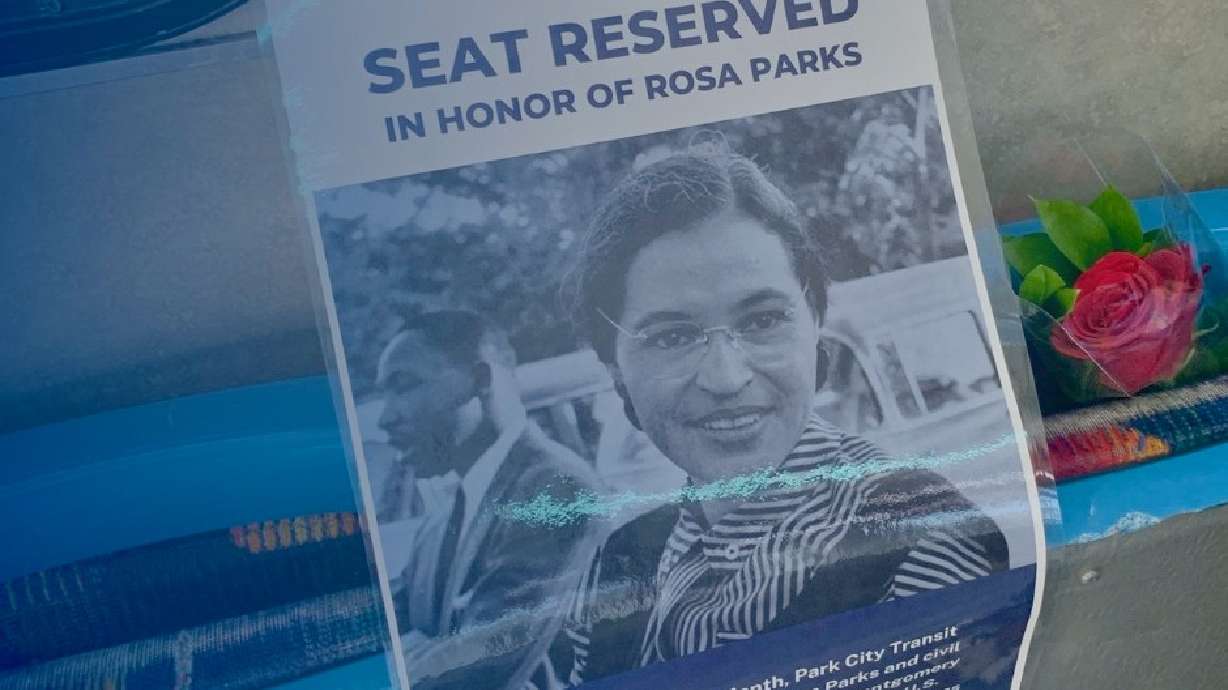Estimated read time: 2-3 minutes
This archived news story is available only for your personal, non-commercial use. Information in the story may be outdated or superseded by additional information. Reading or replaying the story in its archived form does not constitute a republication of the story.
PARK CITY — They may have received second-class treatment as bus passengers back in the 1950s.
But Park City Transit officials are symbolically reserving seats on the system's buses this month for Rosa Parks and Claudette Colvin, civil rights activists who helped spur the Montgomery, Alabama, bus boycott. The symbolic gesture coincides with Black History Month, February, and is meant as a nod to diversity, inclusion and respect for all cultures, said Juan Cardona, outreach and marketing coordinator for the transit system.
"We hope this will inspire our riders to learn more about the Montgomery bus boycotts and Civil Rights Movement that these and other civil rights activists helped initiate," reads an announcement of the initiative on the Park City Transit website. Per the initiative, "Seat Reserved" signs featuring photos of Parks and Colvin and a brief history of their efforts are posted at seats on Park City buses.
Parks and Colvin, less well-known than her counterpart, refused to give up their seats to white riders while on city buses in Montgomery in separate incidents in 1955 and they were both arrested. Rules of the day required Black riders to sit in the back of city buses and to give up their seats to white riders if they got crowded.
The policy and Parks' arrest prompted Black customers to boycott the city's bus system as a form of protest. At the same time, five Montgomery women, aided by the NAACP, sued in federal court over the policy and a federal judge ruled in 1956 that racially segregated seating on buses violated the U.S. Constitution. The U.S. Supreme Court upheld the ruling later that year as the Civil Rights Movement steamed forward.
Cardona estimates the signage honoring the two civil rights icons is on about 30 of the Park City system's 45 or so buses, which offer free transportation in Park City. Parks died in 2005 while Colvin is still alive.
"It's just to share something with the community and to be able to learn something," he said.










